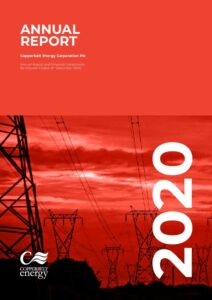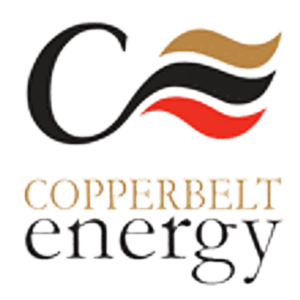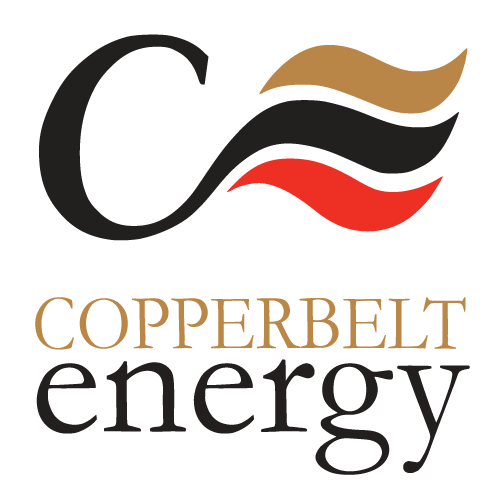CEC 2020 Annual Report
Letter from the Chairman
On the back of a challenging business environment compounded by unprecedented market developments which upset the norm and threatened business continuity, I am proud to report that the Company remained focused on its mandate of providing quality energy solutions to our customers led by the mining industry – the anchor of our country’s economy.
Despite being assailed by the lingering KCM debt, the declaration of the Company’s entire transmission and distribution lines as common carrier and the difficulties in getting back to the negotiating table to agree the contractual matters involving CEC, KCM and ZESCO, we resolutely delivered on our underlying financial and operational objectives. Settling all matters of concern to the business stayed atop of our priorities.
External environment
On the global front, the continued spread of the COVID-19 pandemic, its persistent threat to public health and the resultant economic disruption led to a deep global recession. Global GDP contracted by 3.5%, compared to a growth of over 2% in 2019.
The pandemic combined with other factors in causing notable stress to the Zambian economy, with mining, tourism and trade being among the most hard-hit, manifesting in a default on external debt repayments, high inflation (19% at year-end), currency weakness and a GDP contraction of about 4.2%. Amid the raging COVID-19 pandemic, the government initiated several relief measures intended to prop up the economy. These included the K10 Billion Stimulus Package and the Targeted Medium-Term Refinancing Facility, both administered by the Bank of Zambia, in addition to the issuance of the K2.3 billion COVID-19 bond. Rallying copper prices in the latter part of the year helped shore up economic performance.
COVID-19
In the middle of the first quarter of 2020, it became clear that the business would not escape the impact of the coronavirus disease, as its effects were quickly becoming clear. Working with the Board, our management team devised preparedness and disease control measures, guided by the Company’s circumstances and national guidelines issued by the Ministry of Health.
Our existing, well tested HSES and business continuity preparedness made it possible, in part, for the COVID-19 protocols to be quickly adopted and implemented, ensuring that we continued to secure the wellbeing of our human capital. The protocols enforced included sanitation enhancement, personal protection of our employees through provision of equipment and information, stringent access restriction to Company premises for both employees and contractors and rotational work scheduling. Where practical, technology was deployed to re-engineer and reconfigure work processes to facilitate efficient and cost-effective workflows. Modification of workspaces to enhance physical distance between colleagues that share offices, increased use of electronic and non-physical means of interaction and communication and remote working completed the battery of our disease and cross-infection prevention protocols that helped to contain the disease.
Regrettably, even with this solid and proactive approach, we lost two lives during the year to COVID-19 and related health complications. We pay tribute to them and remain empathetic to all individuals, families and communities affected by the pandemic.
Notable business risks and challenges
The effects and risks due to the COVID-19 pandemic permeated through every aspect of the Company’s operations but were not the only risks the business faced. Other risks the business encountered included:
- The expiration of the BSA on 31st March 2020 without agreeing a renewal or a successor agreement with ZESCO. The BSA underpinned key business arrangements among the three companies, namely, the provision of wheeling services by CEC to ZESCO for its customers in the Copperbelt, the supply of power by ZESCO to CEC and the provision of international wheeling to each other.
- The declaration of the Company’s entire transmission and distribution lines as common carrier by the Minister of Energy through the promulgation of SI 57 on 29th May 2020 and the consequent ERB unilateral setting of a subeconomic transmission tariff.
- The USD153.1 million debt owed by KCM and unpaid at year-end.
- The expiry of the PSA between KCM and the Company on 31st May 2020 and there being no agreement, following that, to underpin the requirement for KCM to remain connected to the CEC network and to facilitate the provision of transmission services to ZESCO allowing them to supply power to KCM using the CEC network.
Navigating the risks and challenges
Addressing the major risks and challenges the business faced formed the bulk of the work of both the Board and management in the year under review. Foremost, we sought to resolve matters through dialogue and the meeting of the minds of the parties involved. In that regard, and as reported last year, we engaged in negotiations on the BSA with the government and ZESCO from February 2020 until the deadlock just before contract expiry. The negotiations did not yield the result desired but we continued to seek out opportunities for further engagement, including participating in government convened meetings. Similarly, we have made numerous overtures to KCM for the parties to come to a landing on the unresolved matters, including the need for an agreement to enable their continuing to receive the necessary services from us without disruption as well as their settlement of the debt. Left unresolved, the KCM debt has the potential to erode the CEC balance sheet and reduce its profitability as can be seen from this year’s financial performance, which the Chief Financial Officer covers in detail in his report starting at page 96.
In respect of the actions taken by the Minister of Energy and the ERB, having carefully considered their ramifications on our business, the Company instituted proceedings for Judicial Review in the High Court for Zambia. At year-end, a decision had not been returned by the Court. An update of the matter post reporting date is provided later in this report under the appropriate section.
It goes without saying that operating in an environment devoid of key contracts exposes all the parties involved to business risks that can be resolved by concluding negotiated agreements. Hence, the Board has prioritised the pursuit of all possible avenues necessary and available to resolve all the matters hanging, taking account of their complexity and the need for solutions that are of mutual benefit to all parties.
Operational and financial performance overview
By many accounts, COVID-19 was a huge disruptor of planned performance and generally slowed down business activity. The resultant disruptions to the supply chain affected project implementation while the frequency of maintenance work in the year was comparatively much lower.
Despite these palpable threats, our teams commended themselves well to their responsibilities, enabling the Company to deliver on its set operational and financial objectives. I am, therefore, pleased to report our achievement of a stellar record of 8.257 million man-hours without a system based injury at the end of the year. We managed our network to world-class standards of reliability and delivered to our customers a level of service of the same high quality they are accustomed to.
We saw our power sales begin to claw back some gains in the latter part of the year, signalling some recovery with a 5% improvement over the previous year. The performance in our DRC market was steady at 6.8% revenue growth. Of the many hurdles the business experienced, the KCM payment default, by far, had the most telling effect on the financial performance; leading to a reduction of 54% in profitability over 2019. The business was able to return USD34.1 million to its shareholders in dividend distribution. Our operational and financial performance is covered comprehensively by our Managing Director and the Chief Financial Officer in their respective reports on pages 28 and 96.
Strategic performance and business sustainability
The Company’s strategic business plan for the period 2020 – 2023 provides a roadmap for positioning the business for continuity and growth. In taking the business forward, the management team, supported by the Board, continues to focus on successfully implementing the strategic plan, which should see a significant reduction in the risks facing the business and further development of the Company’s business model over the period.
DRC market: pursuing growth both at home and in other geographies remains an integral part of our growth strategy. The upward trend in growth in the DRC market was maintained despite suffering artificial transmission path constraints. The reinforced marketing and stakeholder relationship management activities being stirred by our DRC company, CEC-DRC Sarl, continue to gain traction.
Diversified power sourcing: diversifying our supply sources has been top of our agenda as we seek to firm up the supply side. During the year, we started taking power from two IPPs – Lunsemfwa and the Dangote thermal power plant. These sources, while relatively small, are a good addition to our supply portfolio.
Strategic relationships: there are perhaps fewer times than when the business is as challenged as it was in 2020 that the value of strategic relationships comes to the fore. Over the years, we have relentlessly set strategic relationship goals, which we pursue for the benefit of the business and our stakeholders. In our effort to circumvent the various difficulties during the year, we brought to bear in our engagements with our stakeholders, the value built into and borne out of our transparent, dutiful and mutually respecting approach; be it in the disclosures to our shareholders and the market, our creditors or in our audience with communities and governmental authorities. This has stood well for our integrity, credibility and well-meaning motivations.
Enterprise and social support
Contributing to the growth of local enterprise and enabling social emancipation through targeted investments is important in our quest for value creation and sustainability. During the year, we delivered commercial value to local enterprise and invested in community initiatives and causes with potential for transformative outcomes.
We recognised the threat that the COVID-19 pandemic posed to the survival of local businesses and the knock-on effects on the economy. We enabled contracts for goods and services to local suppliers and contractors of up to 43% of the Company’s total economic contribution for the year against 30% that was paid to foreign suppliers. We believe that injecting more than USD129 million into local enterprise through the provision of contracts for the supply of goods and services will aid economic recovery, promote growth and support job creation.
With COVID-19, we saw livelihoods deteriorate as the earning power of, especially, the low-income members of our community was adversely affected by restrictions meant to preserve public health. CEC proactively supported disease containment measures at both community and government levels. The Company sourced and donated to the Ministry of Health COVID-19 testing kits and reagents. In addition, PPE and sanitation products were, including reusable face masks and hand sanitizer, donated to charities, public health institutions and community-supported schools in the Copperbelt and rural North-Western Province.
Governance and leadership
The Board continued to execute its mandate judiciously by refining and improving the governance framework in the quest to maintain the highest standards of corporate governance and to ensure that the interests of shareholders and all stakeholders continue to be met. The committees of the Board were streamlined, resulting in a reduction from 7 to 5. Adherence and compliance to regulatory requirements were fully met. Due to the challenges of the business environment and COVID-19, the AGM was for the first time held virtually. Holding the meeting virtually was positively received and enhanced shareholder attendance and participation.
There were changes to the composition of the Board during the year. Mr. Reynolds Bowa, who represented ZCCM-IH and served as Vice-Chairman at the time, retired on 12th June 2020 and Mr. Mabvuto Chipata was appointed in his stead. Dr. Patrick Nkanza was appointed as Vice-Chairman following the departure of Mr. Bowa. The Board is grateful to Mr. Bowa for the immense contribution he made to the business during his time on the Board. As we welcome Mr Chipata, we look forward to his contribution as he brings with him a wealth of experience.
Events post the reporting date
Certain events of significance warranting my brief comment have occurred after 31st December 2020.
In the section on the major risks and challenges to the business in 2020, I reported that the Company pursued legal action before the courts of law to obtain redress against the declaration of its entire power network as common carrier by the Minister of Energy on 29th May 2020 and consequent action of the ERB.
On 26th February 2021, the High Court delivered judgement in the Company’s favour on all counts contended. We believe this decision of the court is a potential safeguard for the Company’s property and commercial rights, enabling the Company to manage its assets and business, negotiate terms and conditions for the use of its infrastructure and protect its contractual rights. The Company also saw the court ruling as a window of opportunity for all parties to return to the negotiating table to determine mutually acceptable contractual terms for their business relationships going forward. On 5th March 2021, the Government appealed this judgement and applied to the Court to stay its execution. These matters are yet to be decided by the courts.
Obituary
Regrettably, the Company lost Mr. Abel Mkandawire, who had served as a Non-Executive Director on the Board for many years until his death on 6th February 2021. Mr Mkandawire joined the Board in 2005 as an Independent Non-Executive Director. In 2006, he was part of the team that acquired the majority equity stake in the Company, following the divesture of National Grid of the United Kingdom and Cinergy Global Power of the United States. Subsequent to the acquisition, he was in October 2006 appointed as a Non-Executive Director representing the then majority shareholders. Mr Mkandawire’s corporate experience contributed to shaping the Company’s business growth as it devolved into a listed company and embarked on its ambitious growth and investment strategy into other sectors and geographies. He was the first chairman of the Board’s Safety, Health, Environment and Social Committee and was, at the time of his death, chairman of the Remuneration and Employee Development Committee. The Board, management and the Company at large will greatly miss him.
Outlook
Considering that the challenges and risks we experienced in 2020 are still open and the operating environment yet to show tangible signs of significant improvement, it is our expectation that 2021 will not be much different than 2020 in many respects.
We are expectant that even without surety of a coronavirus vaccine becoming available in the country, the public health situation will move from critical in the coming year to support recovery and stability in certain sectors of the economy. That should also enable the Company to pick up pace where we lost ground in the year because of the pandemic. The global copper prices, which have rallied strongly since the second half-year, are already indicative of a potentially good showing from our mine customers in 2021.
With the relatively good rainfall experienced, the signs are pointing to a better supply-demand balance, hence, much lower load curtailment for the affected power users. That should bode well for business in general and CEC in particular.
We will continue our efforts to engage all involved with the aim of reaching common ground on matters relating to our business relationships with KCM and ZESCO. Resolving all contractual matters remains a top priority for the Company.
One thing we are certain of is that the industry is changing; whether policy and law precede or succeed the transformation borne from the inevitable shift in the nature that the industry will take is a matter to be seen. We do, however, hope that the policy and legal framework will be supportive of the fair uptake of opportunities and discharge of obligations by all players in the sector. On our part, we continue to place ourselves on a path to meet the advancement and shift with readiness; having identified and seized the available opportunities for growth by optimising the deployment of our manufactured capital, developing our human capital, investing in viable partnerships, and cultivating and nurturing relationships with all our stakeholders. In this regard, CEC will forge ahead with efforts to actualise its pipeline renewable energy generation projects going forward.
Gratitude
Undeniably, the success of the business and its ability to navigate a challenging business environment while remaining steadfast in delivering value is driven largely by a hardworking and focused workforce, riding on stakeholder goodwill. As always, I wish to thank all the employees for their contribution to the continuity of the business and their collective resolve to deliver quality service to all our customers at all times even, as we have seen with COVID-19 this year, when the norms within which they discharge their responsibilities are upset, plunging them in unchartered territory.
London Mwafulilwa
Chairman


